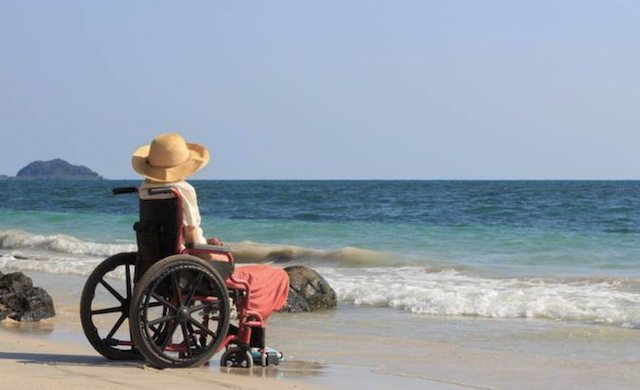Travelling abroad can be a daunting prospect, but with a little extra help, it can be an enjoyable and empowering experience. People with disabilities shouldn’t be put off by travelling, as there are a number of resources available to ensure that travel is accessible and safe. From insurance and accessibility information to travelling as a group, this guide provides an overview of the resources available to travellers with disabilities. With a little planning and preparation, travellers with disabilities can ensure a successful and memorable trip.
Travelling solo or as a group
Travelling solo or as part of a group can be beneficial for people with medical conditions or disabilities. However, the choice will often depend on the severity of their illness and their own preferences. When you travel alone, you may have more independence, flexibility, and control over your travel plans and options. Solo travellers can take their time and enjoy their journey without feeling under any pressure to keep up with their travelling companions because they don’t have to worry about how the decisions of the group will affect their health.
On the other hand, travelling as part of a group can provide a sense of security and companionship. Having a group of people to support and look out for each other can be very comforting, especially for those with disabilities. Additionally, group tours often have knowledgeable guides who are familiar with the area and can provide valuable assistance and advice. They may also offer access to medical services, if necessary.
Finding accessible tours and activities to help you plan your trip
Finding accessible tours and activities for people with disabilities or medical conditions can be a challenge. But with the proper research and preparation, it is possible to find options that meet the needs of those with disabilities or chronic health issues. One of the best ways to find accessible tours and activities is by researching online. There are many websites, like Accessible Travel Online and Wheelchair Travel, that offer comprehensive information on accessible tours and activities around the world. They can also assist you in locating accommodations, transportation, and activities so you can confidently plan your trip and decide where to go and what to do.

Additionally, many local tourism offices offer information on accessible tours, activities, and attractions. You can also contact the tour or activity provider directly to ensure that the activity is accessible and inquire about the availability of any assistive services or equipment that might be needed. Additionally, you should think about any potential transportation requirements and research the available options at the destination. With the proper research and planning, you can find accessible tours and activities that will allow you to travel with greater peace of mind.
Get travel insurance that covers medical conditions
If you have a chronic condition that requires medications or treatment while you are travelling, it is important to make sure that you purchase travel insurance with pre-existing conditions. There are many travel insurance policies on the market, so it is important to find one that covers medical emergencies related to your medical condition or disability.
If you need help finding medical travel insurance, you can try visiting online forums or review sites such as Which or even speaking with family or friends who have recently purchased a travel policy. When you find a policy that meets your requirements, always read the fine print to ensure that it covers medical emergencies and treatment for your condition, as well as to understand what the policy excludes.
Check and restock your medications and prescriptions
When travelling abroad, it is very important to make sure that you are safe and prepared before leaving. This includes checking your prescriptions and making sure you have enough and that they are valid while you are travelling. When travelling, keep them in their original packaging and in your carry on bag to ensure you have them readily available.
If you have discontinued using certain medications, it is important to inform your doctor beforehand so they can advise you on any alternatives. Also, check in with your GP to make sure that you’re fit to fly. Your doctor may have special instructions for you that you need to follow while travelling.
Travel vaccinations.
Before you travel, you should also ensure that you are up-to-date on your vaccinations, including any recommended travel vaccinations. It can help protect against diseases such as yellow fever, typhoid, hepatitis A, and influenza, which can be especially severe for travellers with a weakened immune system. Furthermore, travel vaccines can help prevent the spread of disease because unvaccinated people are often at a greater risk of contracting and spreading illnesses.
Vaccines can be obtained from a travel clinic or your local GP. Most vaccines may also be covered by insurance, making them accessible to all travellers. It is essential to get vaccinated at least 4 to 6 weeks before travelling to give the vaccines time to start working. There are also a variety of resources available to help travellers prepare, such as the NHS and foreign travel advice.









